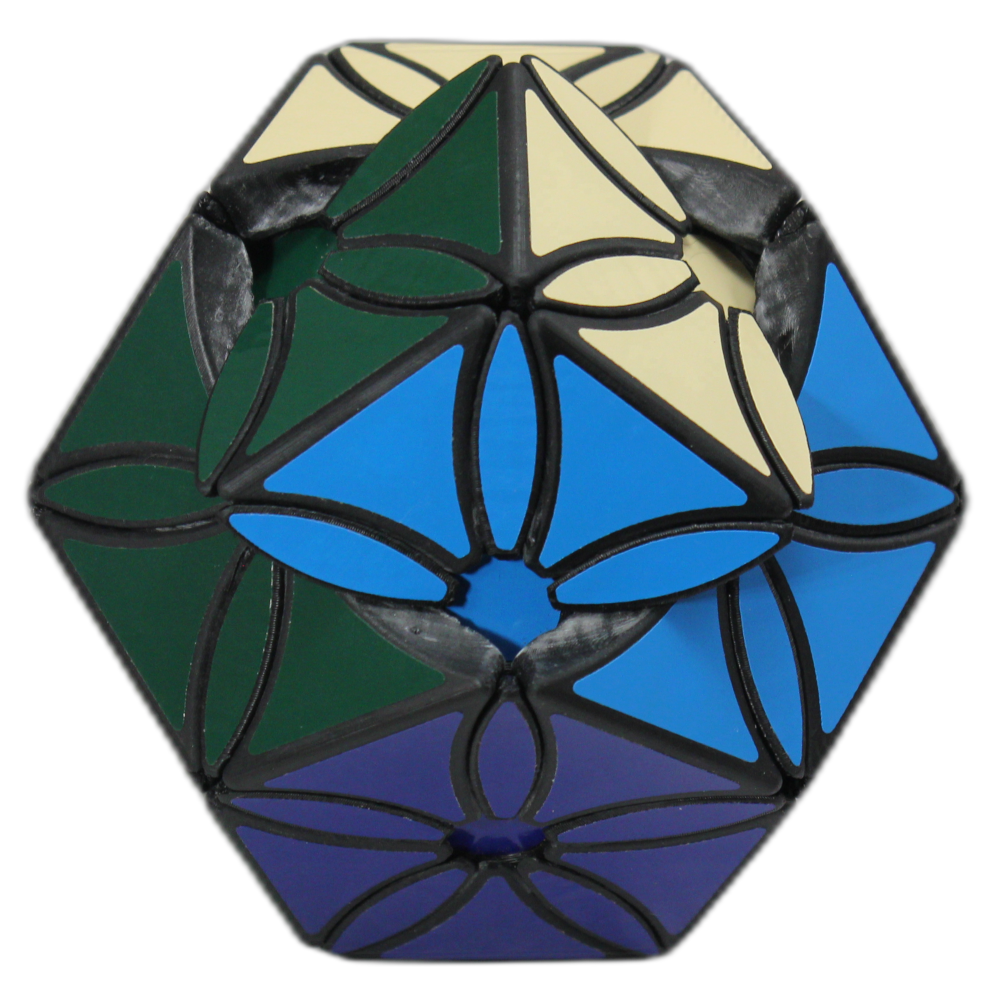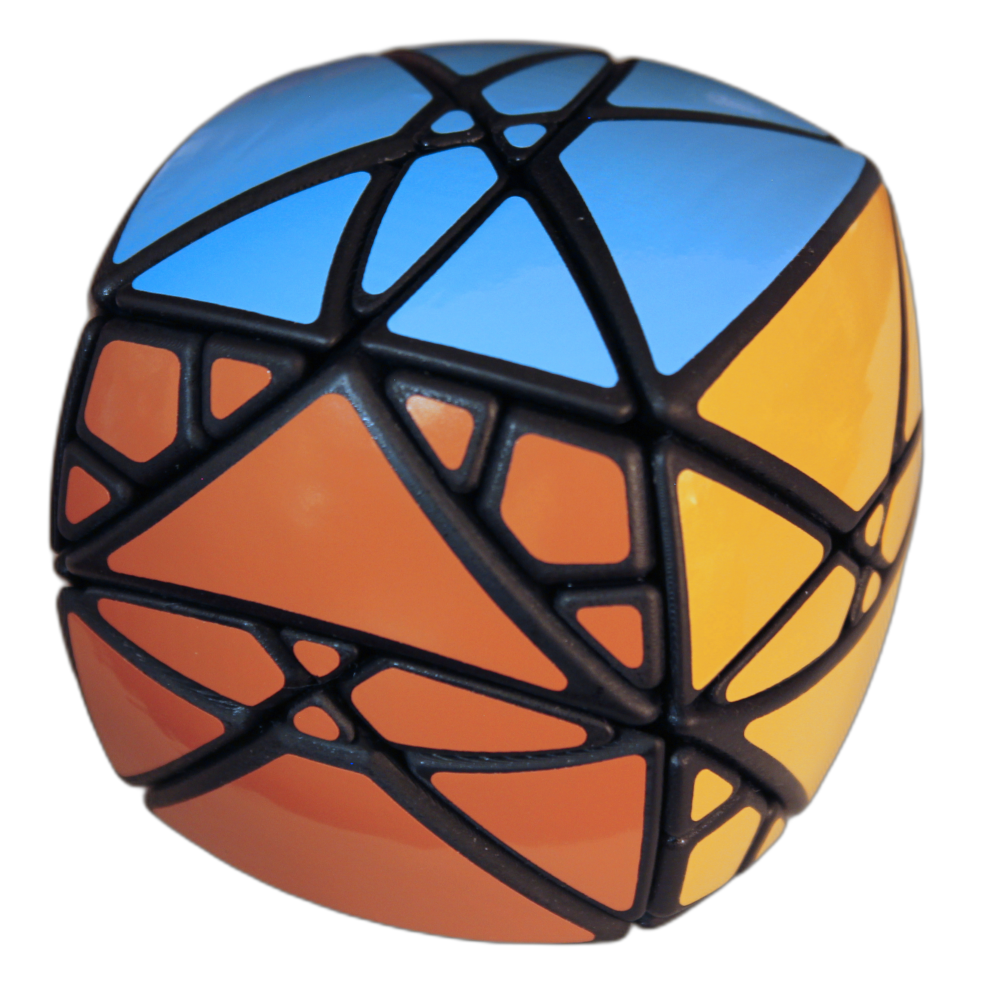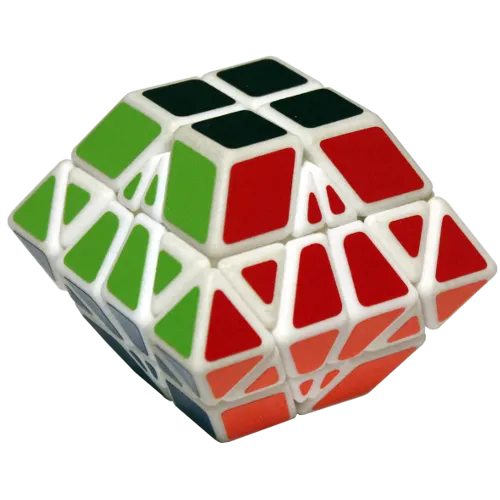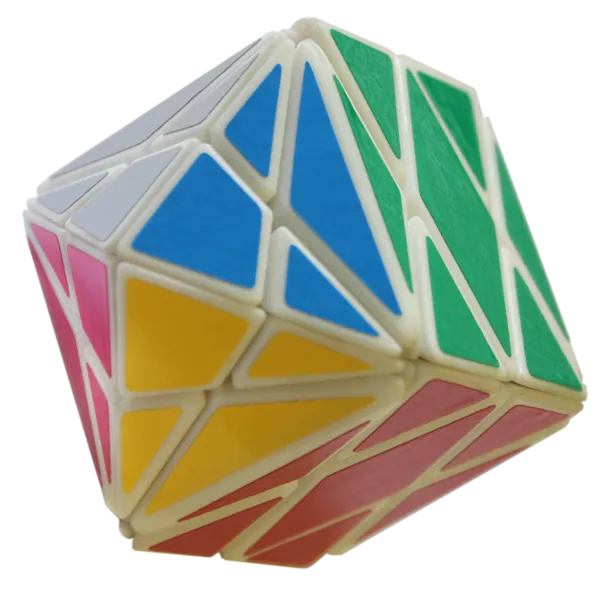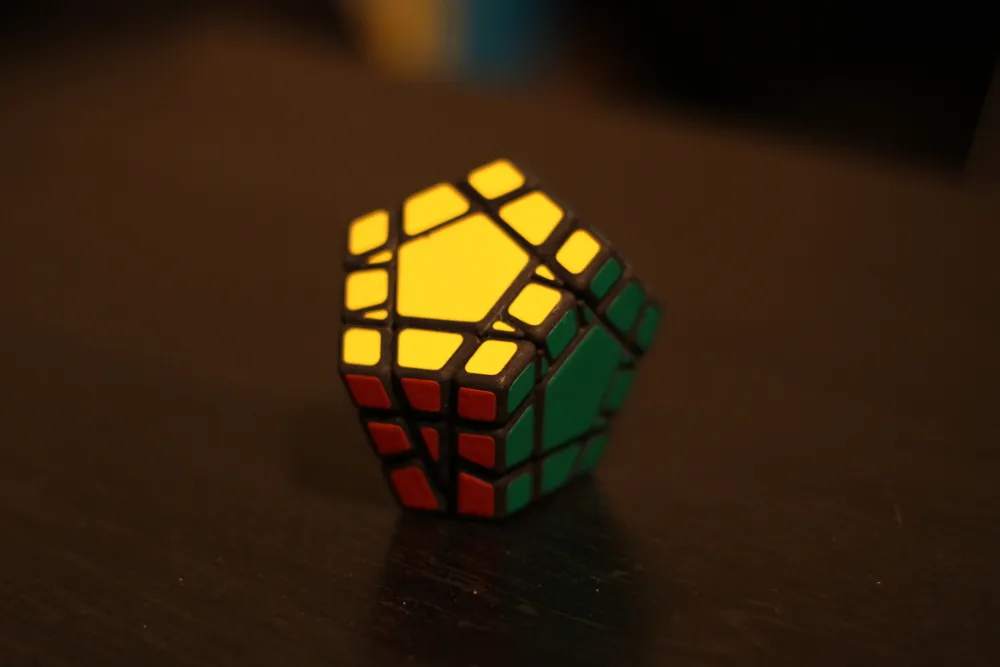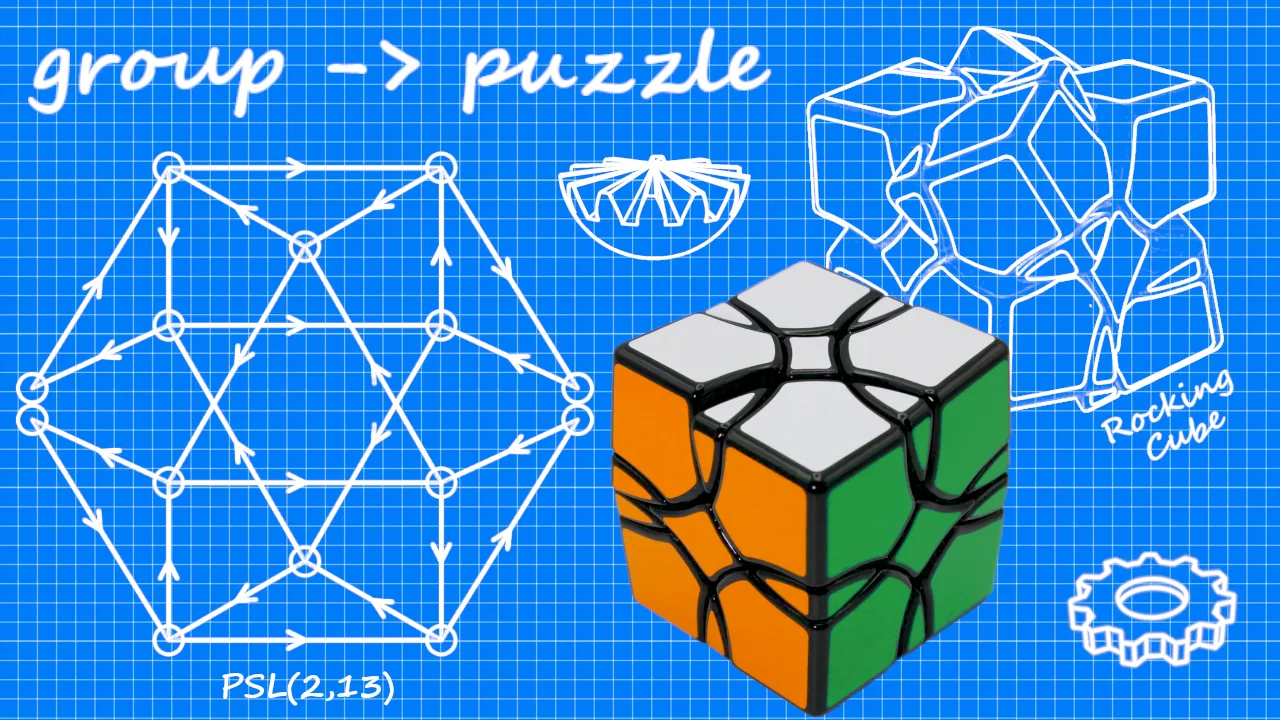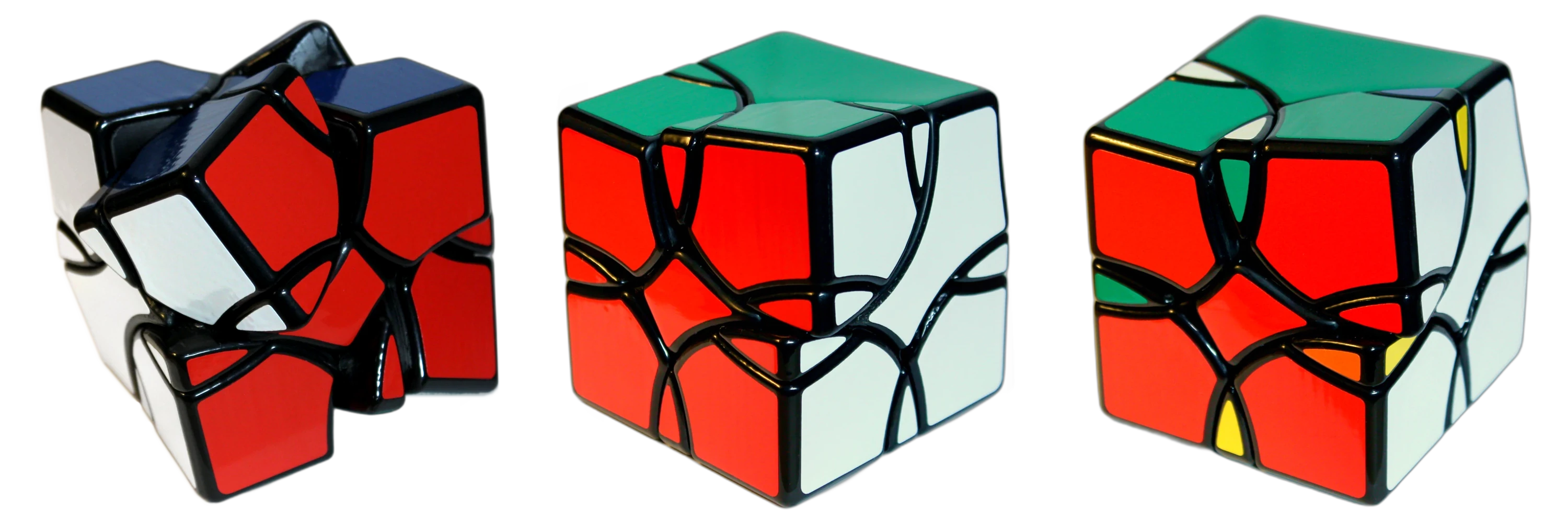
The Crammed Cube is an internally geared twisty puzzle that expresses the Mathieu M11 group over its 12 edge pieces. The puzzle features a modified Compy Cube mechanism with 6 axes, which are mechanically linked into two sets using universal joints and gears. It is called the ‘Crammed Cube’ because, while the axis system would normally have 11 moving edges, I’ve crammed an extra one into the red/white edge and lifted the corner angle to make space. This edge duplication is necessary to make the group actions fit over cubic geometry.
Originally published 2025-03-06
Updated 2025-11-05
Video
Solving Guide
Photos
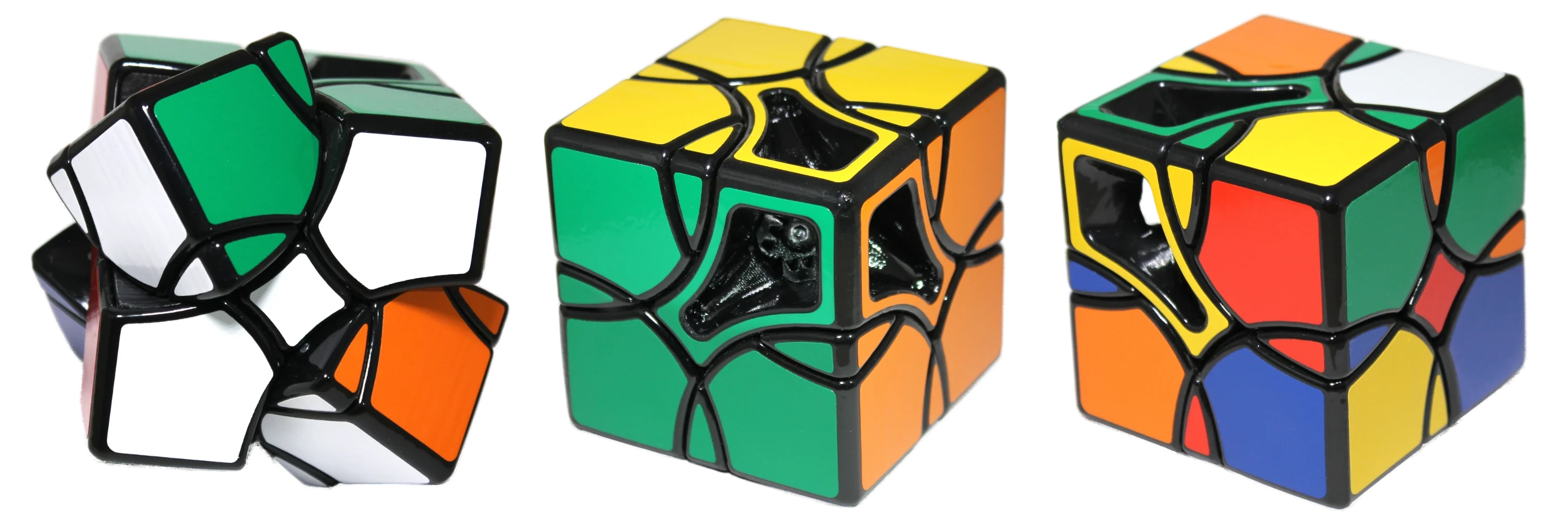
The M12 Cube is an internally geared twisty puzzle that expresses the Mathieu M12 group over its 12 edge pieces.
Video
Solving Guide
Photos
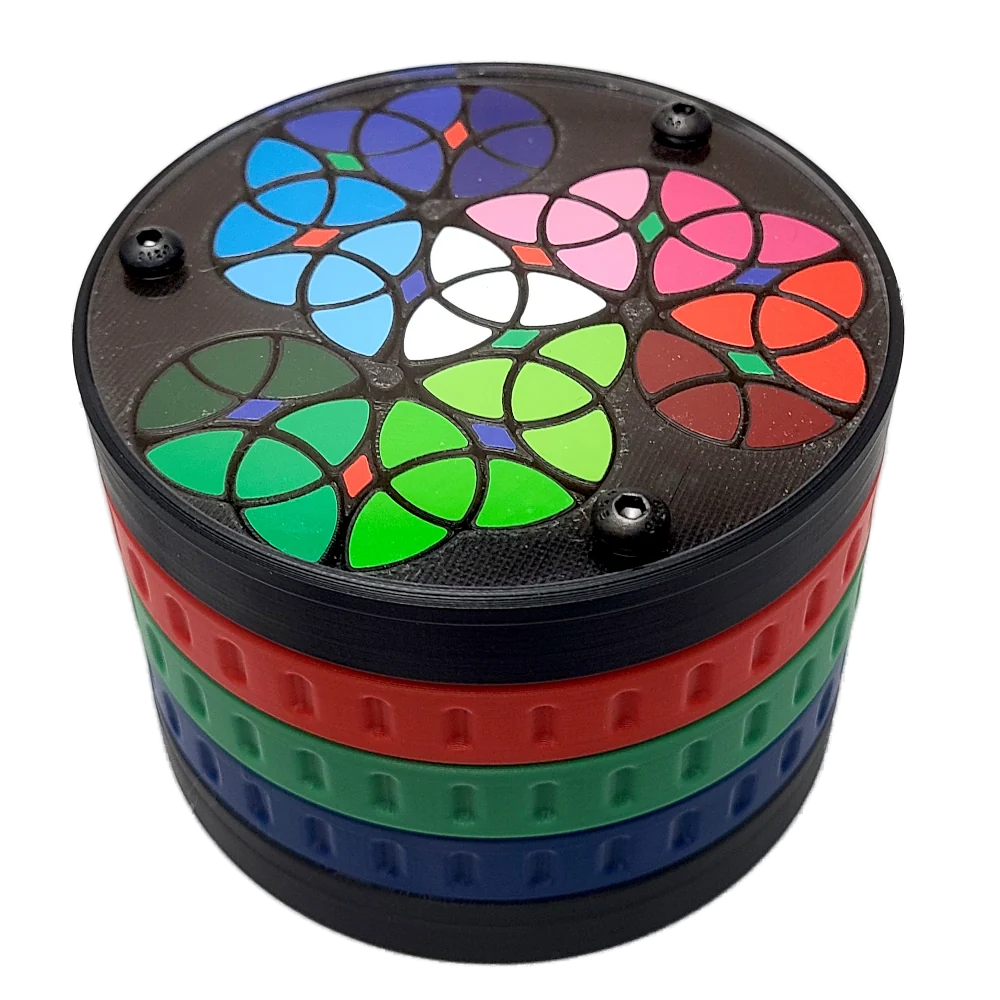
Video: https://www.youtube.com/watch?v=rPHlY3ExgLc
The Triskelion Barrel is another entry in my group theory showcase, this time expressing the PSL₃(3) group over the 13 equilateral triangle pieces. The circles are divided into synchronized sets (marked with red, green, and blue diamond stickers) that turn simultaneously in 180° increments.
I geared the circles together with an external ring gear. Spinning a colored ring causes the corresponding circles to rotate. The mechanism is assembled using a 3D printed kit of axles, bevel gears, and metal pins assembled in layers.
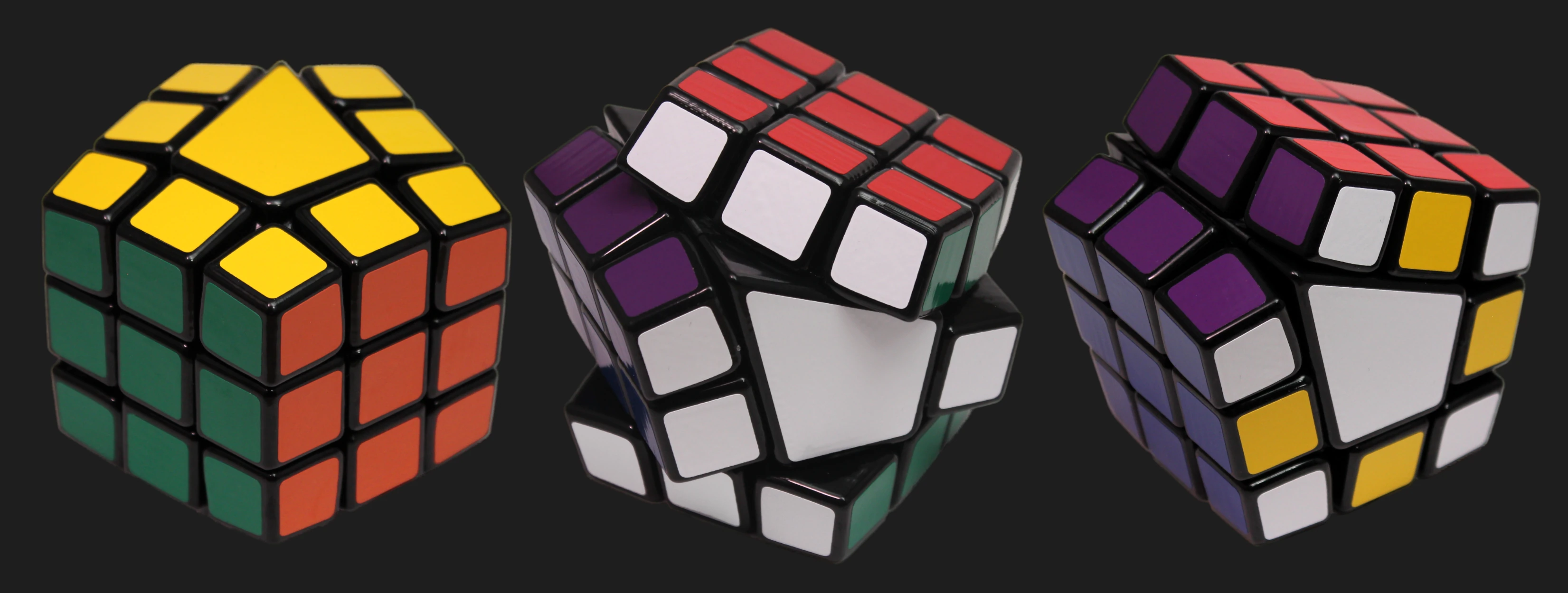
Video: https://www.youtube.com/watch?v=c0AkCcUzcj8
Print it yourself: https://chandler.io/posts/2025/03/print-it-yourself-illegal-slice-cube/
The Illegal Slice Cube continues my exploration of finite group theory in twisty puzzles. It combines two unusual concepts:
Oskar van Deventer’s Illegal Cube
- Fudging permits 90° turns, which normally wouldn’t be allowed on a 3x3 pentagonal prism.
Slice-only puzzles (like Slice Rex Cube)
- Opposite sides turn simultaneously - like a 3x3 Rubik’s cube with middle turns only.
Unlike some of the previous puzzles in this series, this one is pretty difficult to solve.
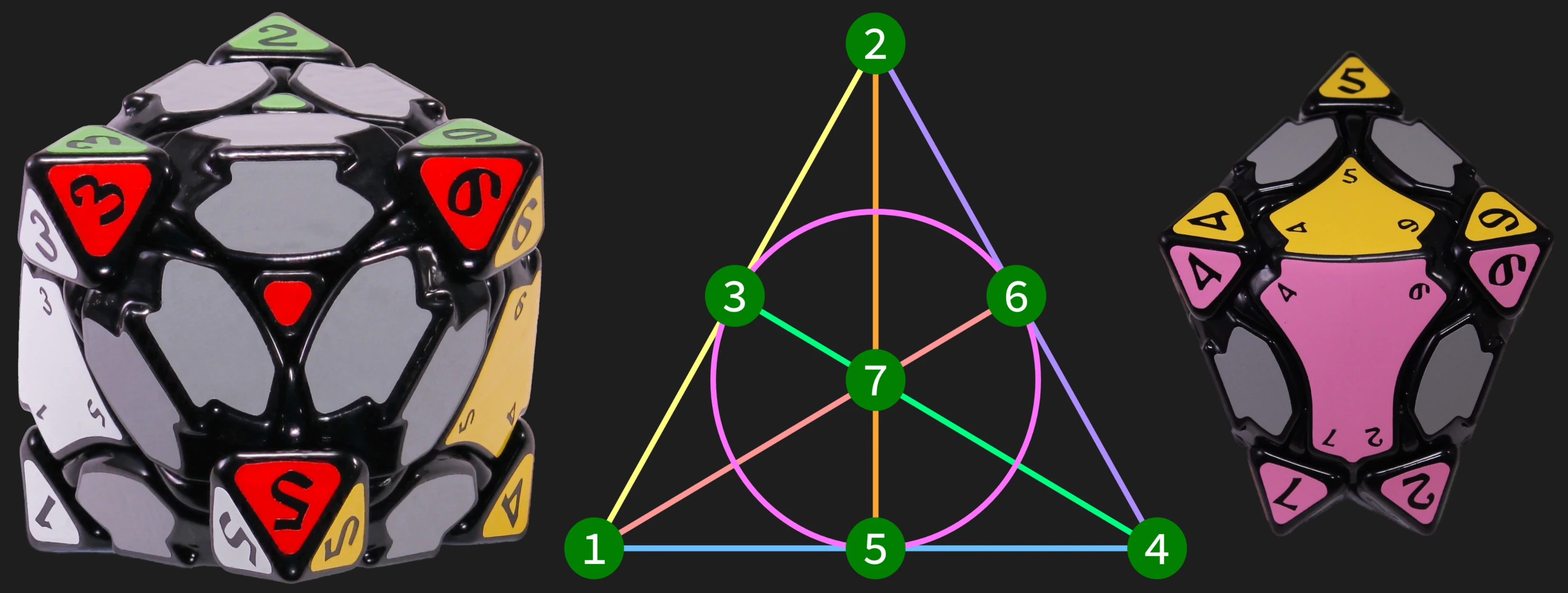
The Fano Gem is a twisty puzzle that I designed to showcase the symmetries of the Fano Plane, which is a familiar object in combinatorics, coding theory, and algebra. The Fano Plane is the smallest possible finite projective plane, constructed from 7 points and 7 lines, where each line contains exactly 3 points.
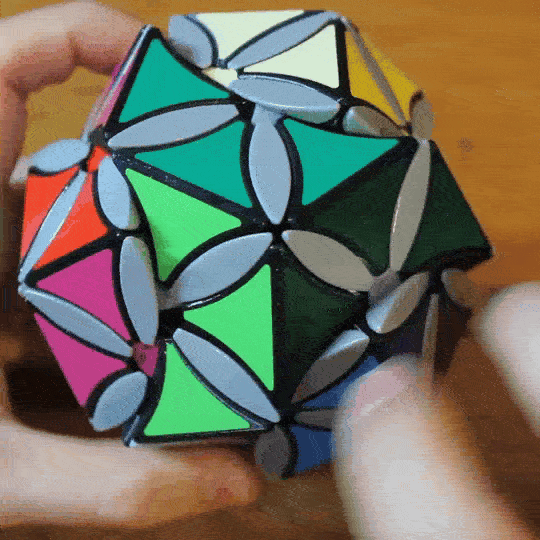
DoDot M12
The DoDot M12 is a twisty puzzle that mechanically demonstrates Mathieu group M12. It’s a modification of my original vertex-turning dodecahedron where sets of three turning axes are geared together internally. This gearing was chosen to greatly reduce the number of possible permutations of the ‘dot’ pieces, which behave according to the rules of the 12-element M12 permutation group. The edge pieces of the puzzle behave as 6 disjoint orbits of 5 pieces, which makes them easy to solve. I greyed out the petals to avoid making the puzzle too complicated.

